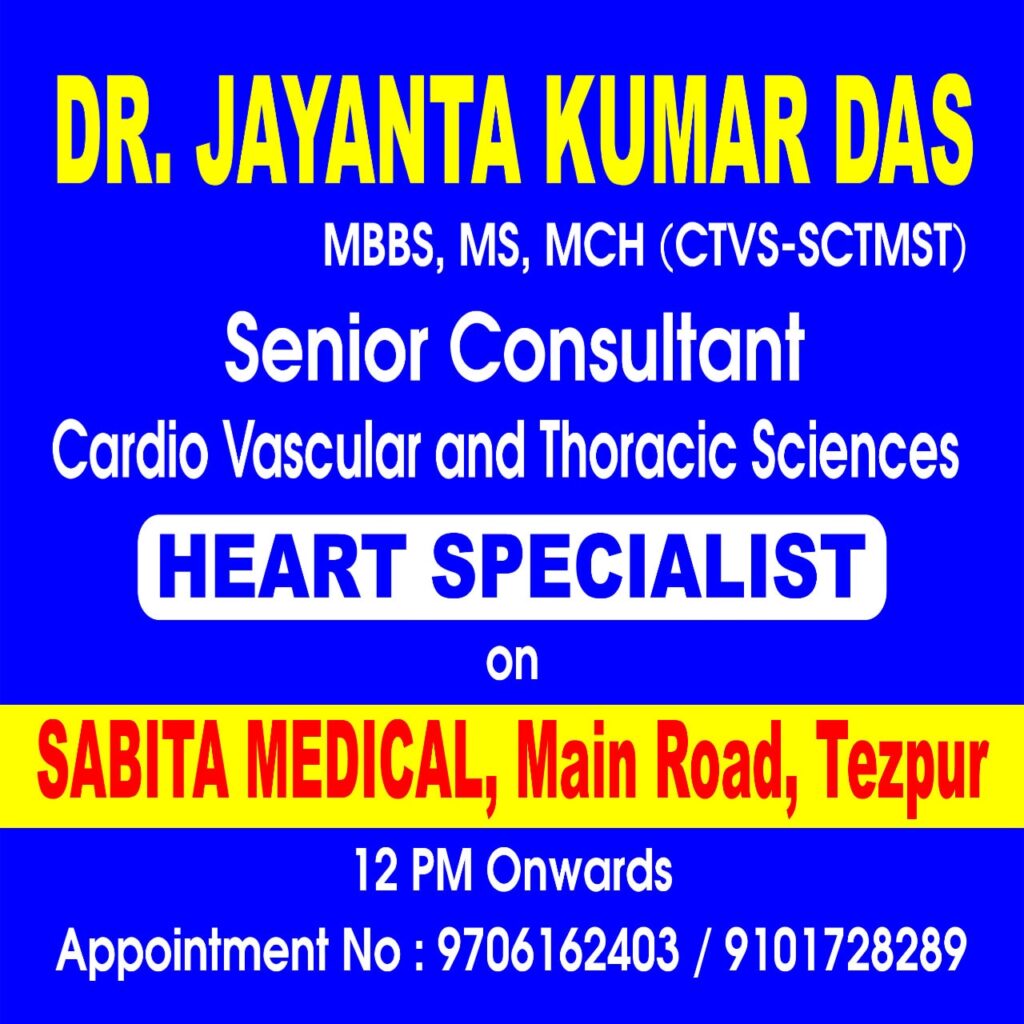Tezpur, Sep 21 : The whole world celebrates 21st September as World Alzheimer’s Day every year with specific themes. This year the theme is “Know Dementia, Know Alzheimer’s”. The Department of Geriatric Mental Health, LGB Regional Institute of Mental Health, Tezpur organized a four day awareness program to celebrate the occasion at the hospital premise. The first day of the program was primarily on the topic “Dementia Awareness”.
Alzheimer’s disease is a neurodegenerative disorder of the brain which affects the person’s ability to work independently making them unable to carry out their daily activities. Alzheimer’s disease affects a person’s memory, orientation, language, comprehension, learning, and judgment. It is the most common type of Dementia along with others like Vascular dementia, Lewy body dementia, Frontotemporal dementia. Alzheimer’s disease may affect every person in different ways. The impacts of the condition can depend on the pre morbid state of the person, her/his personality, lifestyle, quality of relationships and physical health. It is important o note that some people deteriorate faster, and others slowly.

The condition can be best understood in three stages. The early stage is often overlooked. Family members may neglect the symptoms thinking them as result of ‘old age’. The onset of the disease is gradual and difficult to pinpoint the exact duration of illness. At this stage the person may have problems talking properly, have some memory loss, particularly of recent events, have difficulty in making decisions, become inactive and unmotivated, show mood changes, depression or anxiety and may become aggressive or more angry than before, loss of interest in activities which they liked doing prior to the onset of the illness. As the disease progresses, the Person with Alzheimer’s disease may start to have difficulty with day-to-day living. They may become very forgetful – especially of recent events including names of people they know, may become extremely dependent on their family members; unable to cook, clean or shop; needs help with personal hygiene, wandering aimlessly and other behavioural problems. In the third stage the person is totally dependent on other people.
They are usually confined to a wheelchair or bed. Memory disturbances are very serious with serious physical complications. The person may face difficulty eating, walking or incapable of communicating, unable to recognise relatives, friends, they may have bladder and bowel problems, difficulty breathing, etc.
There have been a lot of researches and advancements going on regarding the treatment of Alzheimer’s disease. Treatment modalities of this condition talks about the importance of psychosocial interventions for the person with Alzheimer’s disease and their caregivers. Caregiving of a person with Alzheimer’s disease can be a stressful job because of which there are various negative outcomes attached with the process. People who take care of a loved one with Alzheimer’s disease are usually found to experience high level of burden and stress. In order to take care of the person at home the caregiver can make a routine to structure the day to day activities, engaging the person in activities which she/he is capable of doing by themselves, staying calm and refrain from pointing out when the person fails to do their tasks, simple instruction should be provided, communication should be provided clearly, letting the person perform appropriate exercises after consultation with doctor, attending to their personal hygiene is very crucial, showing old photographs, labelling rooms etc. can help them remember things, keeping an ID card on them with contact details in case they wander out of the house.
A caregiver should always remember to take care of their health first- eat/sleep healthy and if you are feeling stressed, visit LGRIMH Tezpur and get all solution.